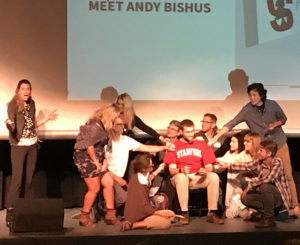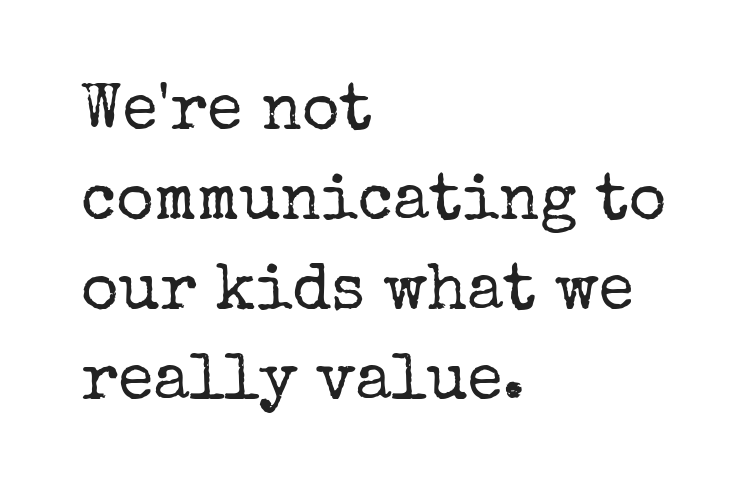Challenging Our Definition of “Success”
Last week I attended a talk by Mary Hofstedt of Challenge Success, an organization dedicated to redefining success and promoting children’s well-being. I’ve been following the work of Challenge Success for several years and love their message.

Meet Andy Bishus
My husband and I got to be in a skit that Mary coordinated called “Andy Bishus.” Andy is a highly ambitious, competent high school student. We each played the role of an adult in Andy’s life (not a parent). I was his Key Club coordinator and asked him to submit his hours and write up about his volunteer time for the weekend. Once I asked Andy for what I needed him to do, I started tugging at his t-shirt. Each of the other people (teachers, coaches, club leaders) asked Andy what they needed him to do and started tugging at him, as well. By the end of the skit, all the parents and teachers in the audience had a clear idea of what the demands are on many kids.
At my speaking events, I ask parents to spend a few moments reflecting on their dreams for thei r kids in 10 or 20 years. I intentionally set the age beyond the college years to get parents thinking longer-term than a 5th grade math grade, making a specific sports team, or a perfect SAT score.
r kids in 10 or 20 years. I intentionally set the age beyond the college years to get parents thinking longer-term than a 5th grade math grade, making a specific sports team, or a perfect SAT score.
Hoftstedt asked us to do a similar activity. She asked us to define what adult success means to us. Here are some of the things we came up with:
• Being happy and healthy
• Doing work that has purpose
• Being moral
• Being kind
• Being self-sufficient
In the research Challenge Success has been doing, they are finding that the majority of kids define adult success (and what they think their parents value most) as going to a selective college, having prestige, and making a lot of money.
Eek! We’ve got a disconnect here! We’re not communicating to our kids what we really value.

But there’s some good news! As parents, we can counteract these cultural messages of “success” with our own family’s definition and share those values with our kids. Here are some of the Challenge Success suggestions (with links to some related resources and posts):
• Define success on your own terms
• Examine subtle messages (don’t always start the post-school question about test scores, grades)
• Avoid over-scheduling and prioritize PDF (playtime, downtime, and family time)
• Limit media/screen time
• Honor health and well-being (more sleep time!!)
• Model engagement and integrity
• Debunk the college myths
You can access more of the Challenge Success resources for parents here.
Check out these downloads about Playtime, Downtime, and Family Time (PDF) from Challenge Success:
Elementary Age
Teens
